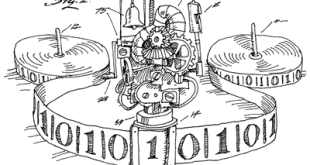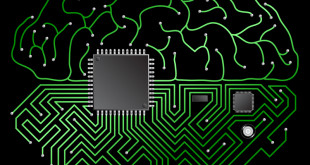Meet Emily Howell. She’s a composer. She can write all kinds of music on all kinds of instruments. She’s faster at learning than any virtuoso you can name and never has to face the block.
Let’s listen to one of her many creations
Sounds like she could not be a human if all that talk about her abilities in the description is to hold. Her abilities seem to far exceed those of a mere human. Well, that’s because she isn’t human, she is a computer program created by UCSC Professor of Music David Cope, who is a noted composer himself. She is essentially an interactive interface that “hears” feedback from listeners, and builds her own musical compositions from a source database, derived from one of Cope’s previous composing programs called Experiments in Musical Intelligence (EMI) or EMMY.
Here’s a piece in the style of Vivaldi by EMMY, Emily’s elder sister
Coming back to the purpose of this article, I will here be dealing with the latter part of the statement that is to say if her abilities really make her more than a human or are simply an alternative to achieve results similar-better compared to what a human would have achieved, in applications of the creative nature – musical expression to be exact.
So let’s first take a look at how we humans deal with music. If I were to ask you about the first time you heard a piece of music, you won’t really have an answer. However you would remember the first artist whose work you felt awed by, or that first arrangement of sounds that inspired you, so much so that you made a conscious effort in that moment to store away that memory proper.
Now before you feel that connect to something, you must have defined yourself in some way, you must have defined your taste. A non-entity has no abilities or properties, and so as long as you were a non-entity devoid of the knowledge of music you couldn’t have connected with music. You must have known it prior, it’s just that until that moment you had not made any conscious efforts at storing away the memories of such interactions with sounds or music. In a way then, your initiation which is completely independent of you, defines your first idea of what music is. From then on it’s a journey of constant explorations and often times deviations from your usual ways which you’ve grown too accustomed to and back.
A question that can be asked here then is how crucial is this initiation, how important a role does that first piece of Bach you heard and instantly recognized yourself falling in love with play in your personal style of musical expression? The answer is a part, this part can be of different proportions depending on the extent of musical exploration the individual has undertaken. Recall that the initiation was independent of your will, and in that moment with no further exploration, you are no better than a machine that has been fed one input for use in all of its outputs by something external to it, say the programmer. But after a considerable amount of exploratory journey of the works of musicians of varying styles and over an array of different instruments you would have diluted the effect of this initiation in your personal style. This dilution is necessary and results into a more concentrated mix of this entity called you.
Getting back to Emily, she takes in certain inputs and produces outputs. These could be digital waveforms of recorded instruments or sheet music. She analyzes these inputs with her complex algorithms and churns out a nice melody similar in style to the input but not the same. Arguably, an act of creation.
The piece so created is no less music than what a human composer would have produced. However, it lacks in intention. When you listen to Emily’s Shadow World or Land of Stone or From the willow’s keep or any other of her many works, you as a conscious being would derive emotion from it but that doesn’t mean Emily intended for that emotion to be present in the piece. It is much like when a machine says Welcome on the screen, it doesn’t have any intention of conveying the concept of the word welcome like the way we do with all its complex interconnected web of meanings inside of our brains, when another intelligent being says or presents the same word. This human ability to attribute meaning is causing us to see emotion in Emily’s writing and this is not to say it’s an illusion. On the contrary I am asserting that because all humans would invariably derive emotion from the piece, the piece definitely has emotion. It is musical to the same extent the input fed to her was. The problem is that Emily doesn’t know it. She doesn’t understand. She is a machine. She has created music which she doesn’t know as music.
Let’s look at it another way. Her music will remain music until the moment we as humans decide that we no longer recognize any emotion in the series of notes she is generating because we now all agree that she lacks consciousness; which is a statement we all would arrive at once we have had that look inside her head, where we now know the mechanisms she’s operating with and are perceiving her work as being too machinistic to be considered music. Want evidence? Try playing that first video now. This perceived character of the artists I believe has a major role to play when we talk of music, sounds that we like and enjoy.
Emily Howell understands music as 1s and 0s while we know of it as vibrations, experiences and extra-sensory feelings. She has a dynamic algorithm based on machine learning that she applies to all the inputs being fed to her while we have no set processes, we can call algorithm or definite inputs from where we feed our creations (from all science tell us today, what we have as creative processes in our brains is pretty dynamic and robust to be put up in a static code). If she is fed garbage data, a non-sensical stream of 1s and 0s, she will churn out a non-sensical stream of 1s and 0s while we would instantly know garbage as garbage and not operate on it or operate on it with a different than usual approach. Now, if our definitions of music are so different could it not be that the entities being referred to, her music and ours are also different.
To conclude,
I am not saying I didn’t find her creations music-like or that I was unable to derive any sense of joy from it, I most certainly did both of those things. But my concern here is with all this AI research diving headfirst into attaching a creative potential of sorts into programs. Are we today on the verge of defining a new music? A definition that would be based solely upon the process of creation. Historically, we know that music hasn’t been defined that way, and it doesn’t fit well with my current understanding of music and logic either. But the times are changing, so the question then becomes would I have to accomodate for this in a very near future? Also I think we can’t wait for time to tell, creativity which is one of our essential virtues is at stake here. Artificial Intelligence Research is overcoming new challenges each day, while creating many more, albeit in different fields of study but challenges nonetheless.
Read more about Emily Howell here
And you can buy her CD, From Darkness, Light here
 The Holy Connection An Alternative Exploration of Existence
The Holy Connection An Alternative Exploration of Existence



